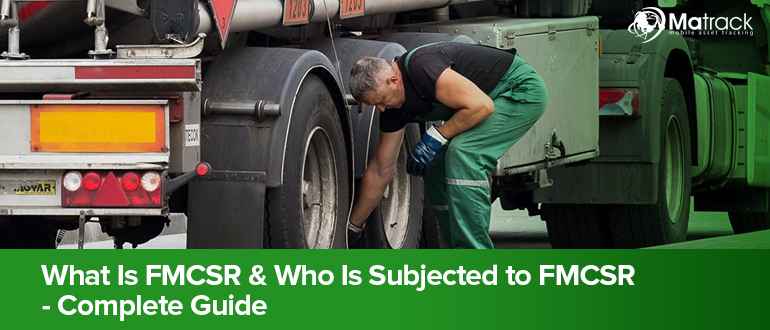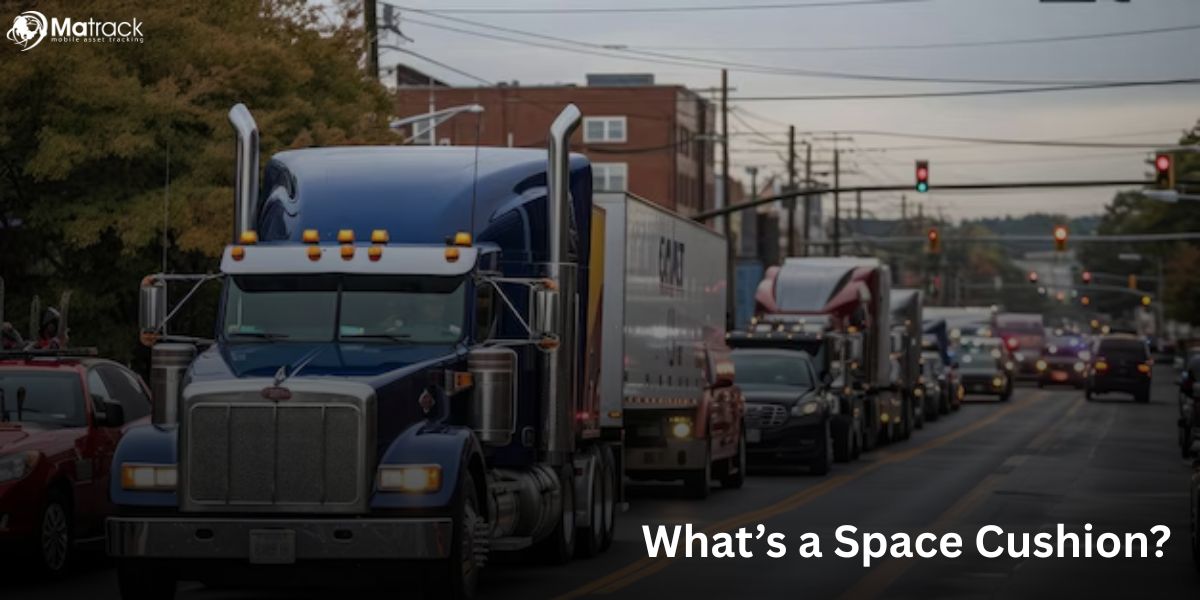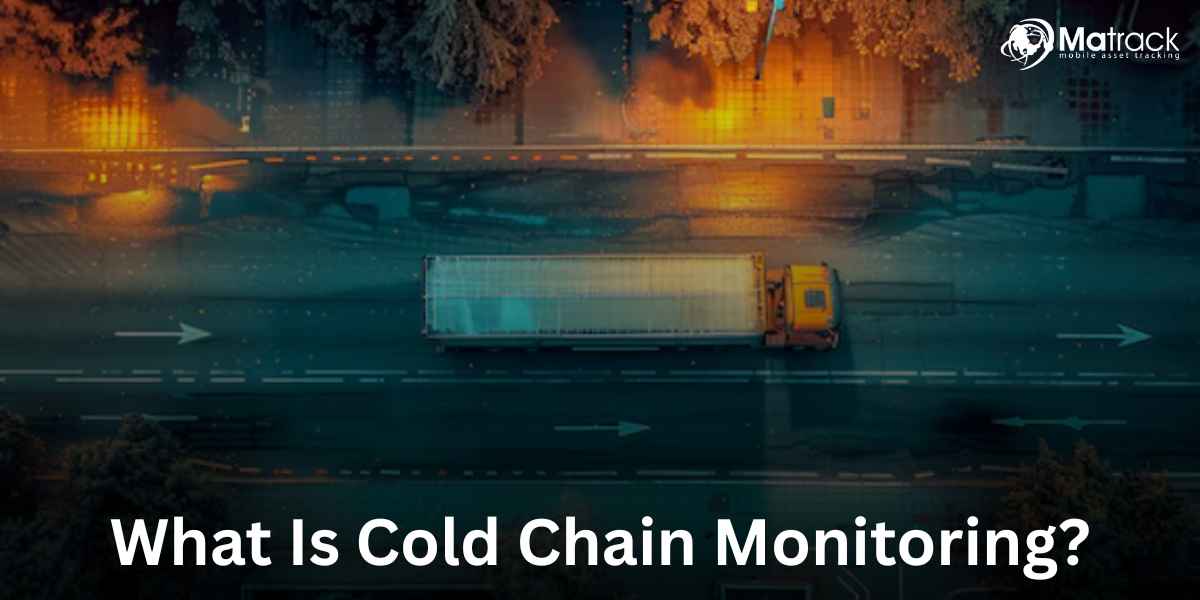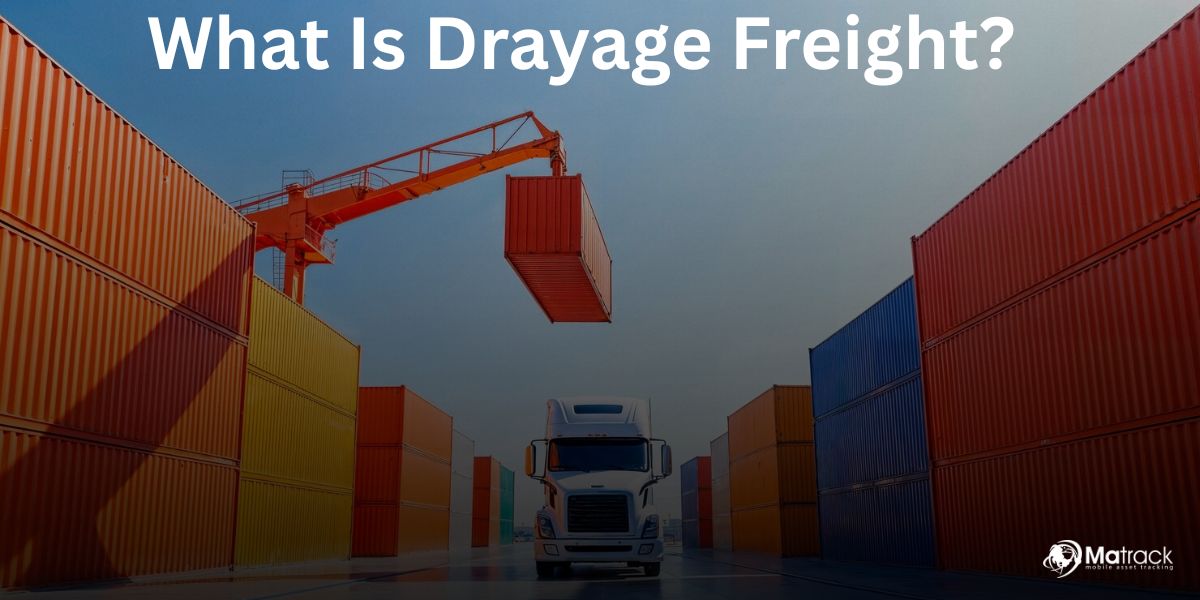Key Takeaways
- The Federal Motor Carrier Safety Regulations (FMCSR) are safety rules for commercial motor vehicles used for transportation between states.
- The rules cover driver qualifications, driving hours, vehicle maintenance, and drug and alcohol testing.
- Common violations include unsafe brakes, missed inspections, driving too long, and poor records, which lead to fines.
- Following FMCSR helps ensure safety, avoid penalties, and keep operations running smoothly.
What Is FMCSR?
FMCSR stands for Federal Motor Carrier Safety Regulations. These are rules created by the Federal Motor Carrier Safety Administration (FMCSA) to keep commercial motor vehicles safe and used for interstate transportation..
The regulations are for vehicles used in interstate commerce, like trucks or buses, that meet specific size or weight limits. They aim to make roads safer by reducing accidents and setting clear guidelines for the transportation industry.
FMCSR covers important areas such as ensuring drivers are qualified, keeping vehicles in good condition, and limiting how many hours drivers can work. Following these rules isn’t just about safety; it helps avoid fines and keeps companies running efficiently.
Who Is Subject to FMCSR?
FMCSR applies to anyone operating commercial motor vehicles (CMVs) in interstate commerce if they meet specific criteria. Below are the key groups who must follow FMCSR rules:
Commercial Motor Vehicle Operators
FMCSR applies to vehicles that meet these conditions:
- Have a gross vehicle weight rating (GVWR) or combination weight rating of 10,001 pounds or more.
- They are built to carry nine or more passengers (including the driver) for pay or 16 or more passengers not for pay.
- Transport hazardous materials requiring placards under federal HazMat regulations.
Motor Carrier Companies
Companies operating CMVs across state lines must follow FMCSR. These include:
- Freight hauling businesses.
- Passenger transportation services, like bus companies.
- Delivery services using vehicles that meet the FMCSR criteria.
Independent Contractors
Independent contractors operating CMVs are also subject to FMCSR. This often includes owner-operators who manage their trucks in the trucking industry.
Drivers of Private Fleets
Businesses using CMVs for their goods or equipment must comply with FMCSR. For example, a construction company uses trucks with a GVWR of over 10,001 pounds for interstate deliveries.
Entities Transporting Hazardous Materials
Anyone transporting hazardous materials in amounts requiring placards must follow FMCSR. These rules include extra safety and operational standards for handling dangerous goods.
Key Aspects of FMCSR
Driver Qualifications
Driver qualifications require a valid Commercial Driver’s License (CDL) appropriate for the operated vehicle. In most states, drivers must also meet the minimum age requirement of 21 years for interstate driving or 18 years for intrastate driving.
Medical fitness is an essential part of these qualifications, confirmed through an examination by a certified medical examiner. A good driving record is crucial, as serious violations like DUIs can result in disqualification. Read more about driver qualification.
Hours of Service (HOS)
Hours of Service regulations are in place to prevent fatigue by limiting driving to 11 hours within a 14-hour on-duty period after 10 hours of rest. These rules are vital for reducing fatigue-related accidents and keeping roads safer.
To comply, drivers must also take a 30-minute break after 8 hours of driving. Weekly work limits are set at 60 hours over 7 days or 70 hours over 8 days for companies operating continuously. Learn about hos rules.
Vehicle Maintenance
Vehicle maintenance involves regular pre-trip and post-trip inspections to ensure safety on the road. Carriers are required to keep detailed maintenance records and address any mechanical issues immediately.
Annual DOT inspections are another critical component to ensure that all vehicles meet federal safety standards. Proper maintenance reduces the chances of breakdowns and accidents caused by mechanical failure.
Drug and Alcohol Testing
Drug and alcohol testing ensures drivers are not impaired while operating commercial vehicles. Testing is required at key stages, such as pre-employment, post-accident, or when there is suspicion of substance use.
Maintaining sobriety is critical for road safety and compliance. Drivers who fail these tests are immediately disqualified from driving until they meet all return-to-duty requirements.
Related: FMCSA alcohol regulations for truck drivers
Hazardous Materials Rules
Hazardous materials rules apply to drivers transporting dangerous goods. A HazMat endorsement on the CDL and compliance with packaging and labeling requirements are mandatory.
Vehicles carrying hazardous materials must also have spill kits and fire extinguishers. These precautions are designed to prevent accidents and reduce risks during transport.
FMCSR Compliance Procedures and Documentation
FMCSR compliance is managed by the Federal Motor Carrier Safety Administration (FMCSA), part of the Department of Transportation (DOT). It aims to reduce commercial vehicle accidents and injuries by monitoring fleets through inspections, audits, and data scoring.
Here are the key compliance requirements and necessary documentation for motor carriers:
Alcohol and Substance Testing
FMCSR requires drivers to undergo alcohol and substance testing to ensure safety. Testing is conducted in the following situations:
- Before hiring a driver (pre-employment).
- After a crash (post-accident).
- When drivers are selected randomly (random testing).
- If there is evidence of intoxication (reasonable suspicion).
Companies must keep records of all test results and have a clear testing plan. These records are critical for inspections and audits.
Also see: DOT Requirements And Regulations
Accident Register
An accident register tracks all incidents involving a carrier’s vehicles. This helps businesses analyze incidents and make improvements to prevent future accidents.
The register must include:
- The date and location of the accident.
- Driver details.
- The number of injuries or fatalities.
- Whether hazardous materials (other than fuel) were involved.
Updating the register immediately after each incident is essential to stay compliant.
Insurance
FMCSR requires carriers to have enough insurance to cover accident-related expenses. Coverage includes property damage, personal injury, and environmental cleanup for hazardous spills.
The minimum insurance is $750,000, but it can go up to $5 million, depending on vehicle size, passenger numbers, or the type of cargo. Carriers must carry proof of insurance, like Form MCS-90, in their vehicles.
FMCSR Documentation Requirements
Carriers and drivers must keep all required documents updated and available during inspections. These include:
- A valid Commercial Driver’s License (CDL).
- A medical certificate or waiver from an approved examiner.
- Record of duty status: ELD logs or paper logs if not using ELDs.
- Vehicle registration documents for trucks and trailers.
- Reports of regular inspections and maintenance.
- Bills of lading for goods being transported.
- Receipts and expense records were collected during the trip.
- Documents for hazardous material transport, such as permits and route plans.
- Proof of insurance, like Form MCS-90.
Following these procedures and keeping records organized ensures compliance with FMCSA regulations and helps avoid penalties.
How to Stay Compliant with FMCSR
Understand the Regulations
Understand the regulations by reviewing FMCSR requirements for your business operations. The FMCSA website provides helpful updates and detailed guidance for compliance.
Implement a Compliance Program
Implement a compliance program that sets clear policies on hours of service, driver qualifications, and vehicle maintenance. Having structured policies ensures employees understand their responsibilities.
Use Technology
Use technology like Electronic Logging Devices (ELDs) to monitor driving hours accurately. Fleet management tools can also help track maintenance schedules and improve overall compliance.
Train Drivers and Staff
Train drivers and staff regularly to keep them informed about FMCSR rules. Safety workshops and training sessions help reinforce the importance of compliance.
Maintain Accurate Records
Maintain accurate records for driver logs, vehicle inspections, and drug tests. Keeping well-organized documentation ensures a smooth audit process and shows compliance with FMCSR.
Common FMCSR Violations and How to Prevent Them
FMCSR violations can lead to fines, delays, and safety risks. Understanding the most common issues helps carriers stay compliant and avoid penalties. Here are the key violations and ways to address them:

Non-Working Lights or Reflectors
Broken or missing lights and reflectors are easy to spot during inspections. Regular pre-trip checks and quick replacements help avoid this common violation.
Missing Proof of Inspections
Failing to provide inspection documents is a frequent problem. Drivers must carry proof of annual inspections and ensure they are up to date.
Brake Problems
Unsafe brakes or improper adjustments are serious safety concerns. Regular brake inspections and fixing any issues immediately are essential for compliance.
Tire Issues
Flat tyres or air leaks are common causes of roadside violations. Checking tyre pressure and condition before every trip reduces this risk.
Fire Extinguisher Problems
Missing, unsecured, or empty fire extinguishers are easy to avoid. Drivers should ensure extinguishers are in good condition and properly mounted in the vehicle.
Leaking Fluids
Oil or grease leaks can cause environmental hazards and violations. Regular maintenance and fixing leaks immediately ensure compliance.
Damaged Brake Hoses
Brake hoses must not be chafed, kinked, or worn. Routine inspections and replacing damaged hoses prevent braking issues and violations.
Lack of Maintenance Records
Not keeping maintenance records is a frequent issue. Carriers should document all repairs and inspections to stay compliant.
Penalties for Non-Compliance
The U.S. Department of Transportation (DOT) enforces Federal Motor Carrier Safety Regulations (FMCSR) to ensure safety. These rules are monitored by the Federal Motor Carrier Safety Administration (FMCSA) through audits and inspections.
Breaking these rules is against the law and can lead to severe penalties. Depending on the violation, fines range from $5,000 to $50,000 daily.
Common DOT Non-Compliance Fines:
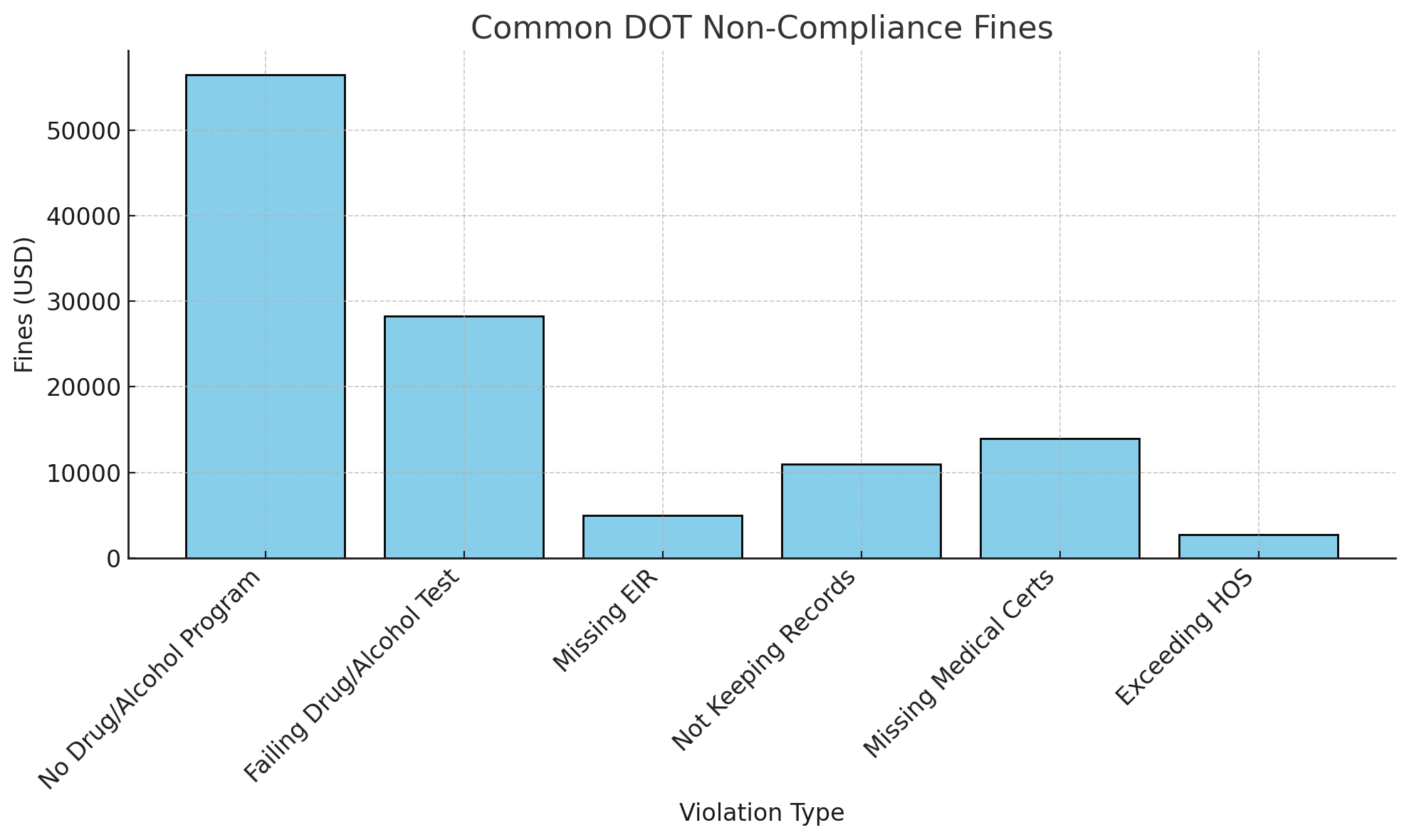
- Not having a drug and alcohol testing program: Fines up to $56,500.
- Failing drug and alcohol testing requirements: Fines up to $28,250.
- Incorrect or missing Employer Identification Report (EIR): Fines up to $5,000.
- Not keeping required records: Fines up to $11,000.
- Missing medical certifications for drivers: Fines up to $14,000.
- Exceeding Hours of Service (HOS): Fines up to $2,750 per violation.
An enforcement case ends when FMCSA issues a Notice of Claim (NOC) and the carrier either pays, settles, or defaults. If defaulted, a Final Agency Order makes the penalties final.
Related: FMCSA Violations and Penalties: How GPS Tracking Helps
Frequently Asked Questions
Who needs to comply with FMCSR regulations?
Anyone involved in interstate commercial transportation, including trucking companies, bus companies, and drivers of commercial motor vehicles, must follow FMCSR rules.
What are some essential safety regulations covered by FMCSR?
The key regulations include driver qualifications, hours of service limits, vehicle maintenance, and drug and alcohol testing.
What are the penalties for non-compliance with FMCSR?
Penalties can include fines, suspension from service, and in severe cases, criminal charges.
Where can I find resources to help ensure FMCSR compliance?
You can find resources on the FMCSA website, which offers guides, forms, and training materials. Industry groups and transportation lawyers can also provide help.
Conclusion
FMCSR, or Federal Motor Carrier Safety Regulations, helps keep commercial transportation safe. It focuses on qualified drivers, safe vehicles, and proper operations.
Following FMCSR helps reduce risks, avoid fines, and keep businesses running smoothly. Staying updated with FMCSA guidelines makes it easier to follow the rules and ensure safety.
